As we weather the storm of the Covid-19 Coronavirus, we are getting rare glimpses of a better world. A New Zealand where the streets are quieter, the air is cleaner, and we have more time with our families. The essentials of life are in sharper focus.
This time is hard and it’s not over yet, but New Zealand’s response to the economic aftermath of the Covid-19 crisis could also be a once-in-a-lifetime chance to reset. To build back better.
We could come out of this with a reimagined New Zealand where people and nature are properly valued. A society where the ways we travel, generate electricity and produce food are cleaner and more sustainable.
If we make the right choices.
Jacinda Ardern has shown strong leadership by front footing a response to the coronavirus crisis with measures to keep us all safe and lessen the impact on jobs, health and communities.
The Government’s initial response to the pandemic has rightly been to focus on eliminating the virus and ensuring people’s lives and livelihoods are protected as much as possible.
In coming months they’ll go further. They will announce significant spending on infrastructure projects designed to create jobs and income.
This is a huge opportunity if we make the right choices.
We currently face three simultaneous crises in Aotearoa New Zealand:
- The Covid-19 pandemic and its associated economic downturn
- Rising inequality
- A worsening climate and ecological crisis.
This massive spending in response to the Covid-19 crisis could transform how we live, work and interact with our planet in a way that adds real long-term value. But if we don’t get it right, there is a risk that it can lock us into more pollution, more inequality and an ongoing approach that further degrades the health of our planet and our people.
We must be vigilant against the wiles of big polluters who will also have their hands out. They will be desperate to return us to the status quo, where they had undue influence and profited from exploiting people and the natural world.
But we must resist that push to return to ‘normal’, because it was normal that was the problem.
Now is our chance to create the world anew in a way that is consistent with the knowledge that we are part of nature, not separate from it, and our wellbeing is intrinsically linked to the health of the natural world. A society in which it is assured that people, not corporations and self-interested elites, are at the heart of our governance; built on an economy which works within the environmental boundaries of the planet. And a community where everyone has enough and the opportunity of well paid work.
As we rebuild, we must honour Te Tiriti through partnership with Māori in all decision-making. Our economic response to Covid-19 must have Māori at the forefront of decision-making, be grounded in Kaupapa Māori, and uphold indigenous rights.
We must devote resources and attention to those that need it most, and ensure any response is accessible to everyone. As people face changes in their work, we must have adequate welfare and re-training programmes, and focus on creating decent jobs that are sustainable and fair for all.
In the initial days of the crisis here at Greenpeace, we acted quickly to put forward the Green Covid Response. With input from hundreds of people like you, we pulled together a package of projects to the Government which together would begin a positive transformation for New Zealand.
We’ve been blown away by the positive response, with thousands of you signing on, sharing and amplifying the plan. We realise that it can be a bit of a long read, so we thought we’d boil it down into five clear choices that New Zealand has ahead. If we make the right choice now, we can build back better after the Covid-19 crisis.
Here are five choices which could transform New Zealand
Please share your favourite ideas using the share buttons under the images.
1. Protecting nature, not polluters
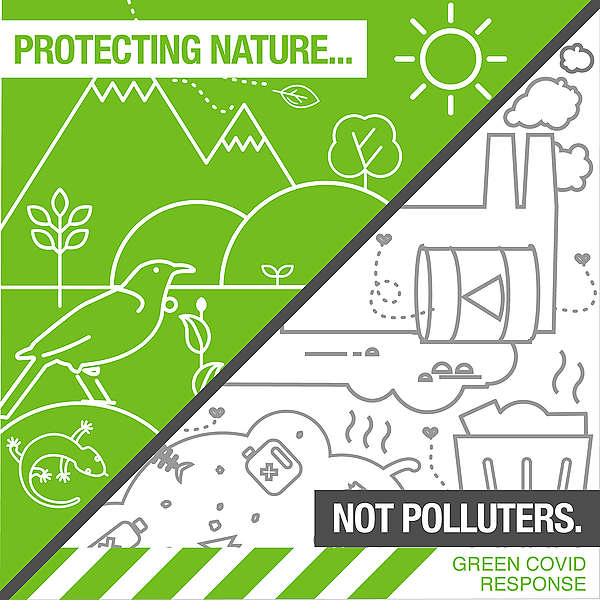
We are part of nature, yet nature is in crisis. But we can bring our threatened wildlife and polluted waterways back from the brink, while creating meaningful jobs for thousands of people. With a nationwide programme to plant native bush along rivers and on erosion-prone hills we can save our soil, rivers and estuaries. We can restore shellfish beds in harbours and inshore spawning grounds of our fish populations. We can eradicate pests from our native forests to protect them and their birdlife.
Our Government shouldn’t yield to companies that are using Covid-19 as an excuse for weakening laws and environmental protections. We must seek to protect nature now more than ever. Iwi/Māori led investment and projects must be prioritised.
2. Build rail not roads
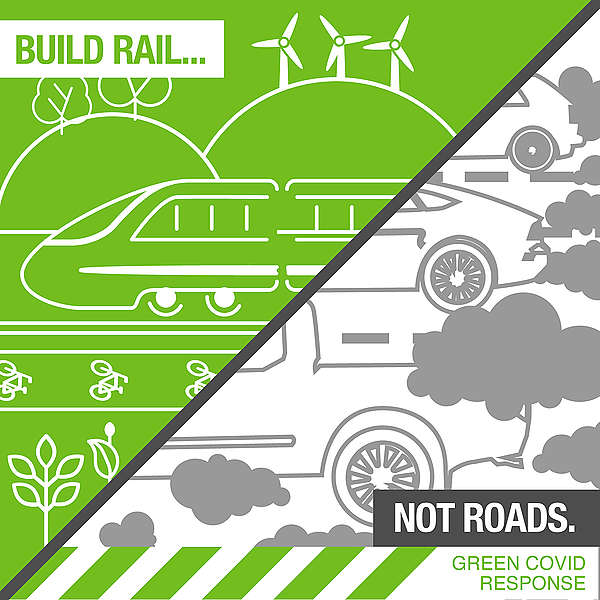
Rail projects produce more jobs per billion dollars spent than motorway infrastructure. Investing big in railways will reduce the need for polluting flights and trucks, and make roads safer for those who need to use them while making us all better connected. The last thing we need is more highways that put more trucks and cars on the road. All new rail projects need to be accessible, taking into account the needs of people with disabilities.
3. Clean energy not dirty fossil fuels
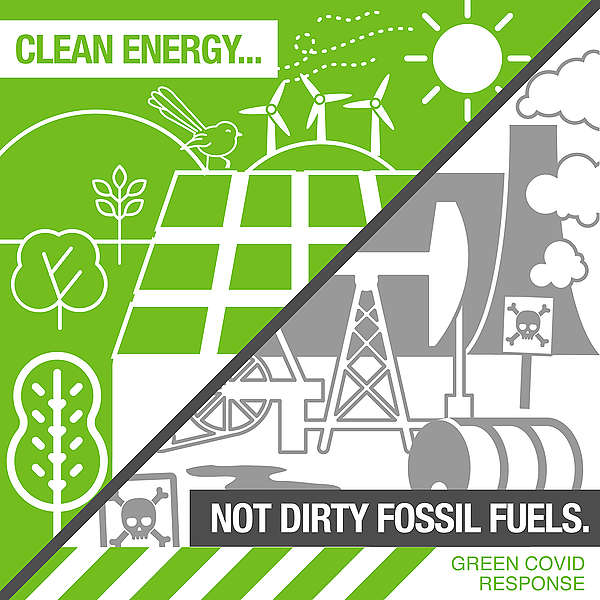
We can power our homes, marae, businesses and transport systems with clean homegrown electricity from the sun and wind. Solar jobs have potential in every town and city across New Zealand. Iwi/Māori led investment and projects must be prioritised. Dirty oil, gas and coal are already on the way out. Now is the time to build up our energy system so that it’s fit for the 21st century.
4. Clean water not more dairy dams
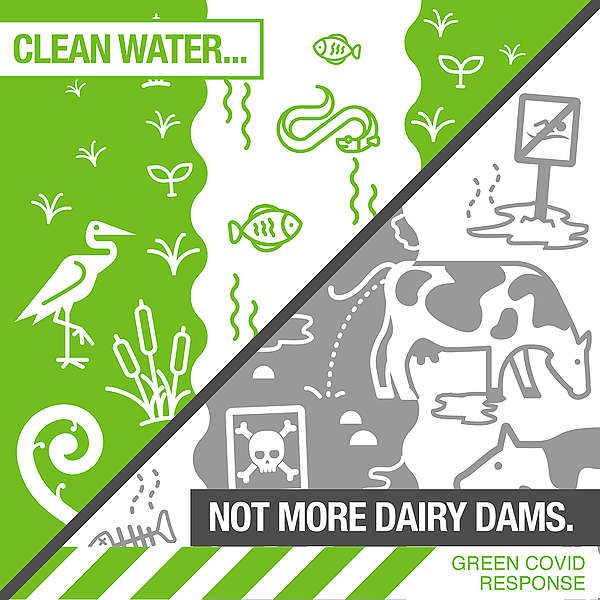
Now’s the time to fix our dilapidated waste and stormwater pipes nationwide. This can provide us with safer drinking water, cleaner rivers and beaches and reduced gastrointestinal disease. We must avoid more irrigation dams that drive dairy farm expansion and pollution of rivers and lakes. Any new water projects need to take account of Māori water rights and Crown obligations under Te Tiriti o Waitangi.
5. Public transport and cycleways not airport expansion
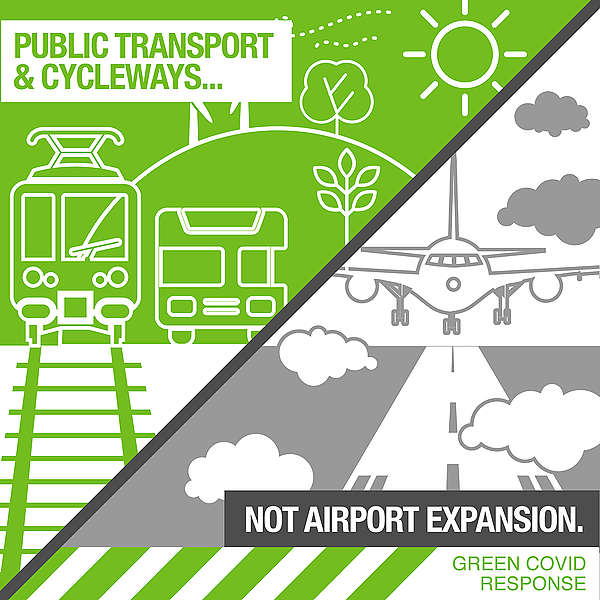
Let’s make our commutes cleaner and more convenient by investing in accessible, reliable public transport. More electric buses, trams and trains, cycle ways and footpaths that make it easier for people to walk, use wheelchairs or scooter across towns and cities without the stress of traffic or finding a car park. Let’s steer clear of airport and runway expansions that will cause more polluting air travel to take off.
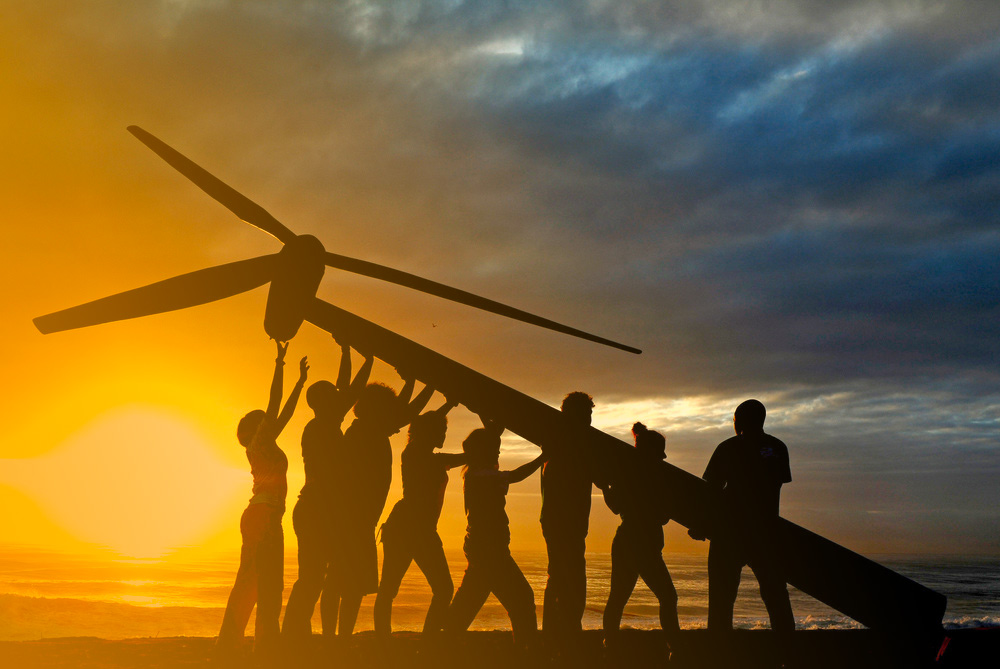 Take Action
Take Action

